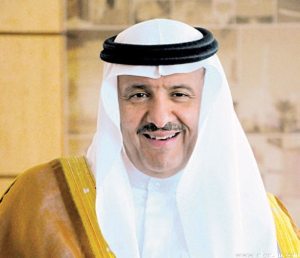
Saudi meetings industry rises towards global leadership
The Kingdom of Saudi Arabia enjoys an eminent position among the nations of the world. Not only is it the cradle of Islam and the land of the two Holy Mosques, but God has bestowed upon it immense natural and human wealth. Furthermore, the Kingdom plays a major constructive role in international circles. Along with its religious, economic, and political dimensions, the Kingdom also holds an important cultural dimension.
HRH Prince Sultan Bin Salman
Antiquities discovered in the Kingdom demonstrate that the Arabian Peninsula – of which Saudi Arabia occupies two-thirds – is one of the oldest areas of human settlement in the world. Evidence shows that man settled Arabia more than 1.2 million years ago and, beginning in the fifth millennium BCE, the inhabitants of the Arabian Peninsula had entered into far-reaching relations eventually extending beyond its borders to Mesopotamia, Syria and the civilizations of the Mediterranean region. At the same time, these activities engendered an oasis-based economy ultimately creating large trade centers.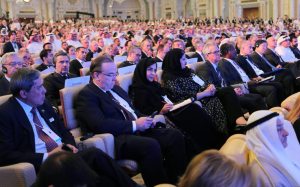 Participants attend the Future Investment Initiative conference in Riyadh, Saudi Arabia October 24, 2017
Participants attend the Future Investment Initiative conference in Riyadh, Saudi Arabia October 24, 2017
Whether one looks to the antiquities associated with the ancient incense trade, or those connected with the pilgrimage routes, the Arabian Peninsula repeatedly emerges as the meeting place of civilizations over many centuries.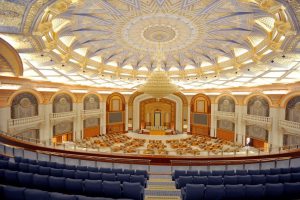 Ritz Carlton Convention Center – Jeddah, Saudi Arabia
Ritz Carlton Convention Center – Jeddah, Saudi Arabia
Saudi Vision 2030:
The investment is part of Saudi Arabia’s Vision 2030, announced in April 2016, an ambitious but achievable blueprint which expresses long-term goals and reflects the country’s strengths and capabilities.
Vision 2030 is to position Saudi Arabia as a global investment powerhouse and a global hub connecting three continents, Asia, Europe and Africa, capitalizing on its status as the heart of the Arab and Islamic worlds and its unique geographic strategic location. Vision 2030 also aims to reinforce and diversify the capabilities of the country’s economy. As such, it will transform the economy away from a dependence on oil production into a industrial conglomerate and transform the Public Investment Fund into the world’s largest sovereign wealth fund. Hosting business events is one of the focal points of the reforms, along with leisure and religious tourism, all means to generate both economy and employment.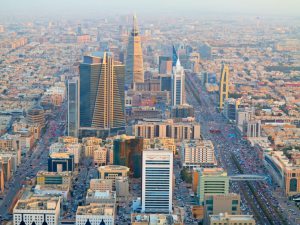 Riyadh
Riyadh
Business events comes under the National Transformation Plan, the centrepiece of Vision 2030, which consists of 755 initiatives costing $100 billion dollars between 2016 and 2020.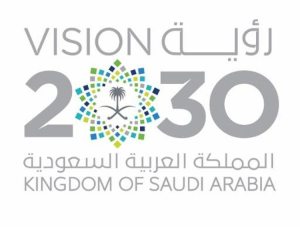
The National Transformation of the Saudi Meetings Industry
The Kingdom of Saudi Arabia has been investing significantly in reinforcing its infrastructure transforming and developing the meetings industry within the country to welcome meetings and business events. It now has more than 500 first class hotels, convention and event facilities and nearly all leading international hotel groups have properties in the major cities.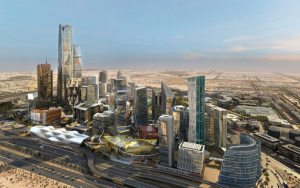 King Abdullah Financial District
King Abdullah Financial District
The signs of national transformation of the Saudi meetings industry has been clearly seen first by establishing a Saudi Academy for event management on March 2017. Then by exhibiting for the first time at IMEX in Frankfurt on May 2017. A pavilion with many Saudi successful event organizing companies marketing their events facilities and services. After that, the announcement of Saudi Arabia membership in ICCA on January 2018. Not finally, a sign was perceived by hosting a Saudi Meetings Industry Convention (SMIC) in Riyadh 18 – 20 Feb 2018 where all investors and professionals of this industry gather, network, exchange knowledge and discuss how can they be global leaders.
Established in September 2013, the Saudi Exhibition and Convention Bureau was created with a mandate to boost the Saudi meetings industry. HRH Prince Sultan bin Salman bin Abdulaziz, president of the Saudi Commission for Tourism & National Heritage (SCTH) and chairman of the Supervisory Committee of the Saudi Exhibition & Conference Bureau (SECB), has said that the Kingdom of Saudi Arabia will become a global leader in the Meetings industry.
A royal decree to join all international meeting industry associations
On November 2017, a Saudi royal decree declared that SECB to become a member of all international associations and federations related to meetings industry. SECB selected the International Congress and Convention Association (ICCA); and this is the first testimony towards the commitment to the meetings industry. ICCA’s business philosophy is built on the foundation of sharing knowledge about international association meetings, something ICCA members have been doing for over 50 years. ICCA extends this thinking into every type of business and knowledge exchange it is involved in. Saudi Exhibition and Convention Bureau’s engagement with ICCA will enable to utilize the expertise of ICCA and enhance the meetings business of Saudi Arabia.
ICCA with over 1100 members from over 100 countries represent the top destinations worldwide, and the most experienced specialist suppliers. Through the membership SECB can rely on the ICCA’s network to find solutions for all their event objectives: venue selection; technical advice; assistance with delegate transportation; full convention planning or ad hoc services.
Apart from education and networking, ICCA has plays an active advocacy role in the region. ICCA has been working very closely with the Convention Bureau of Saudi Arabia in developing the association market segment, the strategic approach on international bidding, the engagement of local associations in the global meetings industry and creating a road map on how to develop local associations of Saudi Arabia.
Eng.Tariq A. Al Essa, Executive Director of Saudi Exhibition and Convention Bureau (SECB) explains what the Bureau is doing and how it is making progress.
Tariq Al-Essa, CEO of the Saudi Exhibition and Convention Bureau QUOTES:
Industry authenticity with long heritage in hosting meetings
“Saudis are genetically passionate with meetings. The notion of networking is pivotal by religion and culture. Interestingly, a study conducted by the Saudi Ministry of Labor revealed that Saudi graduate students selected “event manager” as one of the jobs they are keenest to do. Therefore, we take it very personally in the effort to develop the Saudi meetings industry.”
“Saudi Arabia has a heritage in hosting meetings going back more than 2000 years. Our country has been staging one of the oldest meetings in the world, Okaz, originally an annual summit of Arab poets and a trade fair for Arab businesses; and of course we have 1438 years of experience in hosting the largest and most complex meeting in the planet – the ‘Hajj’. In 2017 more than 1.7 million international delegates from 163 countries took part in this exceptional meeting.”
SECB and the Saudi meetings industry
“We are a self-founded government agency responsible for developing and promoting the meetings industry in Saudi Arabia. The government recognized the importance of the meetings industry and it approved a development strategy for the years 2014 – 2018. The strategy is based on (8) pillars that consist of (23) goals which include (90) initiatives.”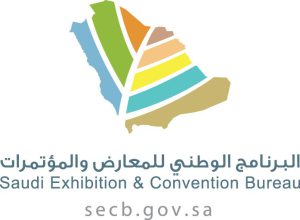
“The SECB aims to be a pioneer. Actually, it operates differently to other convention bureaus around the world. Our mandate is not only marketing; but also the development of the Saudi meetings industry and positioning it as a global leader.”
“Saudi Arabia is the heart of the Arabic and Islamic worlds, it is a pioneering investment powerhouse and the hub connecting three continents. We are creating an environment for successful business events that will attract tourism, business, investments and knowledge to Saudi Arabia. Our vision is to convert Saudi Arabia into a major destination for meetings in the world, which we can be.”
“Saudi Arabia is optimizing the role of the meetings industry in order to increase collaboration, knowledge and innovation in key economic sectors across the Kingdom. However, the meetings industry will definitely drive trade and foreign investment to Saudi Arabia by establishing a foundation for the exchange of information and development of relationships by hosting business events.”
“Business events are greatly dependent on robust sectors and subject matter experts and this is particularly true within many industries in Saudi Arabia such as healthcare, power, petrochemicals, water desalination and Umrah/Hajj services.”
Identifying obstacles and challenges
“As a first step, we identified the major obstacles to the Saudi meetings industry growth, including regulatory, security, accessibility, capacity, competency, sustainability, non-availability of information and marketing”.
“When we started on September 2013, we didn’t have a base. We didn’t know how many business events were going on nor venues, we have started developing our systems and had base numbers by year 2015.”
“Collaborating with other stakeholders is of crucial importance to overcome challenges and exploit opportunities, not just for the Saudi meetings industry but for the growth of the whole country.”
“To deal with the matter of accessibility, we are collaborating with the Ministry of Foreign Affairs in order to smooth the process to obtain visas for speakers and exhibitors. Now the international speakers and exhibitors who participate in Saudi business events can issue visa through an e-system and will receive their visa within 5 business day. In addition, the government is going to release new systems to easy accessibility for business tourists.”
An e-gate at the heart of the Saudi meeting industry
“In addition to SECB efforts to measure the economic impact of the meeting industry in Saudi Arabia and demonstrate the value of the investment, we aim to provide reliable information. In Q4 2015, we have launched an electronic gate – a (3.2) million-dollar project that is at the heart of the Saudi meetings industry. All business events happening in Saudi Arabia should be licensed and reported in this e-gate.”
“The e-gate is unique and not been seen in any country around the world, it has the ability to capture information about the supply and demand for business events held in Saudi Arabia. It provides up-to-date data which can assist business professionals not only to understand the behaviour of the meetings industry, but the behaviour of all economic sectors in Saudi Arabia.”
“The e-gate recorded an exponential increase with (1,637) new accounts during year 2017 reaching a total of (3,797) accounts representing corporates, event organizers, training centres, associations and event venues within the Kingdom. The average monthly number of users is around (10,000).”
“Through the e-gate, SECB tracks business events in 22 category of economic sectors. This information is then shared with event organisers and related government agencies to focus the development of events on economic sectors which are currently underrepresented in the market or aimed to be boosted according to Saudi vision 2030. By doing this, the SECB aims to have a direct impact in enabling the Kingdom to achieve its goals in developing a diverse economy; and thus achieve Saudi vision 2030.”
Developing event venues capacity
“SECB aims to address the Saudi Arabia’s events infrastructure through the establishment of a comprehensive database of facilities across the country, which will be used to compare current levels of demand and assist in the creation of feasibility studies for new investments in physical assets.”
“Currently public investment in the meetings industry in Saudi Arabia up to 2020 is estimated at 6 billion Saudi Riyals (US $1.6billion). These investments include establishing five major convention districts – King Salman International Conference Center in Madinah; King Abdullah Financial District in Riyadh, at the King Khaled International Airport in Riyadh, the King Abdullah Economic City and at the King Abdulaziz Airport in Jeddah, to be completed within the next five years. These are in addition to private sector investments in the industry, represented by hotels with exhibition and conference facilities all over the Kingdom.”
Creating and bidding for business events
“We started from strengthening this idea at a local level and we will gradually extend our campaign to regional and international level. We have spent time characterising Saudi companies to highlight the importance of meeting, discussing, and exchanging opinions, views, and technologies.”
“Although Saudi Arabia is starting to bid for international association meetings, the kingdom is also very keen to create unique and sustainable business events based on its strengths, competitive advantage and the needs of the economy to achieve the Saudi vision 2030.”
“There are plenty of opportunities to deliver all types of business events in any economic sector in Saudi Arabia. We are number one in the world for water desalination and treatment, and obviously oil production, power, petrochemicals, Hajj and Umrah services, Islamic finance, countering terrorism and of course producing dates. This gives the country an opportunity to host business events in these sectors.”
“SECB developed the (Envoy Program) to recruit envoys within Saudi government agencies, associations, chambers and federations who will be enabled to engage with international organizations, discuss partnership opportunities and increase their efforts to attract business events to our country. This will strongly enhance the image of Saudi Arabia as a meeting hub in the region and worldwide, and will make a positive contribution to the economy.”
“Along with stakeholder partners, SECB is tracking the activities of local professionals and experts in all economic sectors who are active in international organisations so they can act as envoys by building collaboration, helping to feedback business leads and playing an essential role in bidding for international association meetings.”
Building the competency for future leaders
“In relation to human resources. we want Saudi people to play a key role in the meetings industry locally and internationally. We approached universities and other institutes, and right now some of them offer courses in event management.”
“We have also secured the involvement of investors in the creation of the Saudi Event Management Academy (SEMA), which is the first step in our bid to deliver future leaders; and to fill the gap between Saudi’s human resources and the competencies that the industry requires. The academy is unique in the Middle East region, and it has been launched in march 2017.”
“The SECB is engaging with event organisers to help them assess their internal capabilities and market competitiveness, with classification standards being established to categorise event organisers based upon their experience, structure and certifications.”
The ultimate enabler of Saudi vision 2030
“The relationship between the Saudi vision 2030 and the Saudi meetings industry is interdependent. Basically, the Saudi vision 2030 is one of the outcomes of the Saudi meetings industry where hundreds of meetings, workshops and other business events held in Saudi Arabia to generate this ambitious vision with initiatives and governance to achieve it.”
“The activities of the Saudi meetings industry are a significant element in the future growth of the Saudi economy; and it will act as a vehicle for business, professional and academic communities to achieve Saudi vision 2030.”
“In fact, even more than many other economic sectors in Saudi Arabia, the fortunes of the Saudi meetings industry tend to reflect the status of the overall economy. Yet a time of Saudi Arabia to boost its economy by vision 2030, is a time when the value of the Saudi meetings industry is likely at its peak.”
Senthil Gopinath, Regional Director Middle East International Congress and Convention (ICCA) thought about the growth of Saudi Meetings industry:
The point about growth in the meetings industry is that it doesn’t take place in a vacuum, it is intimately linked to business activity, especially international activity, and the development of the local association, scientific and healthcare communities. It relates to the importance of a country as a market for outside companies and organizations, and as a source of content, economic resources, and potential partnerships. Sometimes growth in meetings industry infrastructure and capacity follows these wider trends, sometimes, thanks to strong government leadership or visionary companies, it can play a catalytic and lead role. Anyone paying attention to what’s happening in Saudi Arabia will be aware that there is a huge amount of change taking place. Saudi Arabia is really getting serious about meetings industry developments. Engaging with ICCA can bring huge amount of association activity and enhance the events business. For these reasons we believe that growth in the meetings industry will be strong in Saudi Arabia and the long-term prospects are very positive indeed.
ICCA developed strategic “Meetings Industry Development Forum in Saudi Arabia” to enhance association meetings industry knowledge of Saudi Arabia and will continue to do it, which involved local suppliers and associations, who were educated on how they could become association meeting ambassadors and take part in a bid. The Forum also engaged international thought leaders to share knowledge and best practices and further build the knowledge economy in the destination. The second initiative of ICCA with SECB is developing an international forum to showcase the capability of Saudi meetings industry hence a greater involvement with Saudi Meetings Industry Convention has been implemented.
Fact Sheet about Saudi Arabia and the Saudi Meetings Industry
Why Saudi Arabia?
• The Kingdom of Saudi Arabia (KSA) is the largest economy in the region, and a member of the G-20, all of which enhanced its position as a centre for business events in the region.
• KSA is capable of attracting international exhibitions, conventions and meetings, considering that it is strategically located at the crossroads of three continents, and is home to the two holiest cities in Islam. In addition, it is a pioneering investment power in the region, with a solid infrastructure, new and modern facilities as well as hotels. Furthermore, straightforward procedures and regulations, all of which will enable it to assume a prominent position among the nations of the world.
• KSA has always sought in its development plan to diversify the economy, while supporting the growth of the private sector in order to reduce its dependence on oil as a major contributor to the national economy. This will provide more employment opportunities for Saudi youth, and attract foreign capital to support domestic investment projects. To strengthen its competitive position, KSA has adopted sustainable development as a strategic choice.
• Aware of the importance of the meetings industry it took qualitative leaps to motivate its growth, targeting a number of economic sectors, including health, education, training, sports entertainment, commerce, housing, agriculture, information technology, culture, energy, petrochemicals and Hajj and Umrah. The result of which is noticeable and remarkable growth in the meetings industry.
• Saudi’ Vision 2030 which aims at making the Kingdom a successful global model of excellence by shifting to a more diversified economy. (For more information visit www.vision2030.gov.sa/en)
• Saudi Arabia is housing a very promising private sector future.
• An increasing involvement of the private sector in the industry.
• Hotels with the highest standards in strategic locations.
• Being the largest of the Arab Gulf countries, in terms of population and economic strength.
• Highest GDP growth rate in the Middle East.
• Being the biggest oil producer in the world.
• Strong communication and transportation infrastructure.
• Advanced specialized economic sectors: oil, energy, medicine, Information Technology, desalination and water treatment as well as dates.
• Significant growth in academic institutions.
• Saudi government has approved the issuance of investment licenses allowing foreign companies 100% ownership in the trading sector.
Saudi Vision 2030 – Background
• The aim of Saudi Arabia – Vision 2030 is to position Saudi Arabia as a global investment powerhouse, and a global hub connecting three continents, Asia, Europe and Africa, capitalizing on its status as the heart of the Arab and Islamic worlds and its unique geographic strategic location.
• Saudi Arabia – Vision 2030 also aims to reinforce and diversify the capabilities of the country’s economy. As such, it will transform Aramco from an oil producing company into a global industrial conglomerate and transform the Public Investment Fund into the world’s largest sovereign wealth fund.
• Saudi Arabia – Vision 2030 is an ambitious yet achievable blueprint, which expresses long-term goals and expectations, and reflects the country’s strengths and capabilities. It is the first step of a journey toward a better, brighter future for the country.
• Saudi Arabia’s Vision 2030’s themes are focused on having a vibrant society, a thriving economy and an ambitious nation.
• Saudi Arabia’s real wealth lies in the ambition of its people and the potential of its younger generation.
Saudi Vision 2030 – Programs
• To achieve the Vision, the government has already launched many programs that have paved the way for the Vision. These include, but are not limited to, the following:
– The Government restructuring program.
– The National Transformation program.
– The Fiscal Balance programme.
– The Saudi Aramco Strategic Transformation program.
– The Public Investment Fund Restructuring program.
– The Privatization program.
– The Strategic Partnerships program.
– The Human Capital program.
– The program for Strengthening Public Sector Governance.
– The Regulations Review program.
– The Project Management program.
– The Performance Measurement program.
• The National Transformation program 2020 consists of 755 initiatives and 427 performance indicators costing US $100 billion for the period 2016-2020
Saudi Exhibition & Convention Bureau (SECB):
The SECB is a government agency created to support the Saudi meetings industry
• SECB Vision: “To be a pioneer in developing the Saudi meeting industry, which will have a positive effect on the country’s economy.”
• SECB vision Mission: “SECB shall apply industry best practices in overseeing the Saudi meeting industry and in developing the related internal and external environments to accomplish the country’s economic, cultural and social objectives.
Major Initiatives accomplished by the SECB to develop the Saudi meetings industry:
• Classifying business events and defining meeting industry terminologies according to best practices.
• Creating the Saudi Exhibition and Convention Association in March 2017 to be the voice of the private sector and professionals.
• Creating an annual event (Saudi Meetings Industry Convention) that targets the Saudi meeting industry with the aim to discuss issues and opportunities in the Saudi meeting industry, and develop competency and trade.
• Establishing policies, procedures, practices (PPPs) in business events in Saudi Arabia, and developing a system of governance to ensure the quality of Saudi business events.
• Creating a one stop online platform to license business events and generate reliable statistics. It connects the whole industry in one place where demand from event organizers would meet supply of venues electronically.
• Establishing the Saudi Event Management Academy (SEMA) to be a pioneering institute globally in event management.
• Creating the Saudi Envoy Program to enable and support the Saudi associations, federation, trade chambers and government agencies to attract international meetings.
• Simplifying the visa process for those participating in business events in Saudi Arabia.
• Simplifying the temporary customs clearance of exhibited products.
Major Initiatives currently in progress to develop the Saudi meetings industry:
• Establishing the Saudi Speakers Bureau to enhance, support and promote business events contents in Saudi Arabia.
• Creating an annual Saudi Meeting Industry Award.
• Creating a classification system for event organizer and venues.
Creating an arbitration system to solve dispute within the Saudi meeting industry.
• Boosting the Saudi Envoy program.
• Utilizing government convention centers and business events venues with the private sector.
Saudi Arabia meetings industry – Statistics:
• (10,139) business events were held in Saudi Arabia in 2017, with an increase of 16% comparing to year 2016 and (33%) comparing to year 2015; (48%) of these events were held in Riyadh, (30%) in Jeddah, (16%) in Dammam and (6%) were held in other cities in Saudi Arabia.
• Most business events held in 2017 were dominated by (6) economic sectors out of (22) targeted sectors which was health care, education, technology and communication, economy and trade, consumer goods and professional services.
• (190) five and four stars hotels are available in Saudi Arabia and more than 50 are on the pipeline to be delivered within the next four years.
• 41440 rooms are available in five and four stars hotels in Saudi Arabia; and more than 11000 rooms will be added within the next 4 years.
• (788) active Saudi event management companies available in Saudi Arabia.
• (327) active event venues available in Saudi Arabia including convention centers, exhibition center and major event facilities in hotels.
• (190) active Saudi associations and federations organizing business events in Saudi Arabia.
• (1.6) billion dollars is the estimated total of government direct investments in the Saudi meeting industry up to 2020.
• Business tourism (2017)
o 4.1 million inbound business tourism trips with 7.2 billion dollars expenditure.
o 1.4 million domestic business tourism trips with 0.6 billion dollars expenditure.
